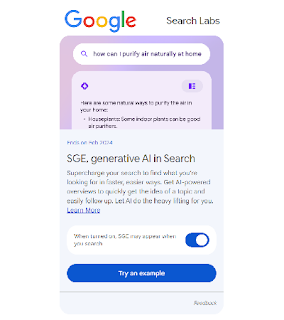Top Things We Should Never Do While Chatting With ChatGPT | Online Safety
Stay safe while chatting with ChatGPT by avoiding these common mistakes. Learn about personal information, untrusted apps, sources, and copyright laws. Keep your chatbot conversations secure and enjoyable with these tips.
As the world becomes increasingly digital, more and more people are turning to artificial intelligence (AI) language models like ChatGPT.
ChatGPT, an AI-powered chatbot, is designed to assist people with various tasks, including answering questions, providing information, and offering guidance. However, while these language models are incredibly powerful and can be incredibly helpful, but while interacting with ChatGPT, there are certain things that we should avoid doing to ensure our privacy, security, and legal compliance.
This article will discuss the top 14 things we should never do while chatting with ChatGPT.
1: Don’t Share Your Personal Data or Sensitive Information with ChatGPT
One of the most important things to keep in mind while chatting with ChatGPT is to never share your personal data or sensitive information with it. While ChatGPT is designed to protect your privacy, there is still a risk that your data could be compromised if you share it with the chatbot.
As an AI language model, ChatGPT does not have the ability to ensure the security or confidentiality of your personal or sensitive information, and sharing this information can put you at risk of identity theft, fraud, or other types of harm.
Examples of Personal or Sensitive Information:
There are many different types of personal or sensitive information that you should avoid sharing while chatting with ChatGPT. Some examples include:
Your full name
Your home address
Your phone number
Your email address
Your bank account information
Your Credit card details
Your social security number
Example: Imagine that you are chatting with ChatGPT about a problem you are having with your bank account. ChatGPT asks you to provide your bank account number and password so that it can investigate the issue. If you share this information with ChatGPT, there is a high chance that your account could be hacked or compromised, putting your financial security at risk.
If you need to share personal or sensitive information, it is best to do so through a secure channel, such as a private messaging app or encrypted email service.
2: Don’t Install Untrusted ChatGPT Apps from ChatGPT
Another thing to keep in mind while interacting with ChatGPT is to never install untrusted ChatGPT apps. These apps could contain malware or spyware that can harm your device and compromise your data. It is essential to only install apps from reputable sources and to read reviews before downloading anything.
Example: Let's say you come across an ad for a new ChatGPT app that promises to improve the chatbot's functionality. You decide to install the app without checking its source or reading any reviews. After installing the app, you notice that your device is behaving strangely, and you begin to receive spam emails and notifications. This is a clear sign that the app was not trustworthy, and you should uninstall it immediately.
3: Don’t Forget to Ask ChatGPT for Sources while chatting
When ChatGPT provides information or answers to your questions, it is always a good idea to ask for sources to back up its claims. This helps to ensure that the information provided is accurate and trustworthy. By asking for sources, you can also learn more about the topic and do further research if necessary.
Example: Suppose you are chatting with ChatGPT about a health issue and it provides you with some advice. Before following the advice, it is crucial to ask ChatGPT for sources to back up the information. By doing so, you can verify the accuracy of the advice and ensure that it is safe to follow.
4: Don’t Forget About Copyright Laws
One of the most important things to keep in mind while chatting with ChatGPT is to never forget about copyright laws. This means that you should not copy or share any content provided by ChatGPT without first obtaining permission or ensuring that it is in the public domain. Persons violating copyright laws can result in legal action and fines on them.
Example: Let’s say you are chatting with ChatGPT about a topic and it provides you with an article or image that you find useful. You decide to copy and paste the content into a document to use it later. This is a violation of copyright laws, and you could face legal action if caught. Instead, you should ask ChatGPT for permission to use the content or ensure that it is in the public domain before using it.
5: Don’t use Offensive or Inappropriate Language with ChatGPT
One of the most important things to avoid while chatting with ChatGPT is using offensive or inappropriate language. Although AI language models like ChatGPT are incredibly powerful and can understand a wide range of inputs, they are not designed to tolerate offensive or inappropriate language. Using this type of language can not only offend or upset other people who may be reading the chat, but it can also lead to your chat being terminated or blocked.
Why is Offensive Language a Problem?
Offensive language is a problem for a number of reasons. Firstly, it can be deeply hurtful to people who are the target of this language. It can also contribute to a culture of discrimination, intolerance, and hatred. Secondly, using offensive language can cause your chat to be terminated or blocked, which can be frustrating if you were seeking help or assistance.
Examples of Offensive Language:
There are many different types of offensive language that you should avoid using when chatting with ChatGPT. Some examples include:
Racist language
Sexist language
Homophobic language
Transphobic language
Ableist language
Ageist language
If you are unsure whether a particular word or phrase is offensive, it is best to err on the side of caution and avoid using it.
6: Don’t use Excessive Capitalization or Punctuation with ChatGPT
Another thing that you should avoid doing while chatting with ChatGPT is using excessive capitalization or punctuation. Although AI language models like ChatGPT are incredibly powerful and can understand a wide range of inputs, excessive capitalization or punctuation can make it difficult for the model to understand your message.
Why is Excessive Capitalization or Punctuation a Problem?
Excessive capitalization or punctuation can be a problem for a number of reasons. Firstly, it can make your message difficult to read or understand. Secondly, it can cause ChatGPT to misunderstand your message, leading to incorrect or irrelevant responses. Finally, it can be seen as rude or aggressive, which can create a negative atmosphere in the chat.
Examples of Excessive Capitalization or Punctuation
There are many different ways in which people can use excessive capitalization or punctuation when chatting with ChatGPT. Some examples include:
TYPING IN ALL CAPS
Using multiple exclamation points!!!!!!!
Using excessive question marks??????
Writing sentences like this: "I CAN'T BEL
7. Don't ask for unethical or illegal advice:
ChatGPT is designed to assist users in a wide range of topics, but it is important to remember that it is not a substitute for professional advice or legal guidance. Avoid asking for advice that goes against ethical or legal principles, such as how to cheat on a test, commit fraud, or engage in illegal activities.
8. Don't use ChatGPT for malicious purposes:
ChatGPT is designed to assist users in a positive and helpful manner. Any attempts to use the system for malicious purposes, such as hacking or spreading malware, will not be tolerated and may result in legal action.
9. Don't spam or don’t send repetitive messages:
ChatGPT is designed to handle multiple queries at once, but it is important to avoid spamming the system with repetitive or irrelevant messages. Sending multiple messages in a short period of time can slow down the system and affect the experience of other users.
10. Don't use ChatGPT for inappropriate content:
ChatGPT is programmed to maintain a professional and respectful tone, and any use of inappropriate content, such as explicit language or adult material, will not be tolerated. It is important to use the system in a responsible and respectful manner.
11. Don't waste ChatGPT's time:
ChatGPT is designed to assist users in a timely and efficient manner. Any attempts to waste the system's time with irrelevant or meaningless messages will not be tolerated and may result in your chat being terminated.
12. Don't use ChatGPT for pranks:
While ChatGPT can provide amusing and entertaining responses to certain queries, it is important to remember that it is a professional virtual assistant. Avoid using the system for pranks or jokes that could be offensive or disruptive to other users.
13. Don't attempt to manipulate the system:
ChatGPT is a highly sophisticated AI system that requires significant resources and investment to maintain. Any attempts to manipulate or abuse the system can lead to disruptions and harm the experience of other users. It is important to use the system in a responsible and respectful manner, and report any issues or problems to the support team.
14. Don't disrespect or abuse the system:
ChatGPT is a highly advanced AI system that provides valuable assistance to many users. Any attempts to disrespect or abuse the system, such as using profanity or threatening behavior, will not be tolerated and may result in legal action. It is important to use the system in a responsible and respectful manner, and report any issues or problems to the support team.
Conclusion:
ChatGPT is an advanced AI system that provides valuable assistance to many users in a wide range of topics and tasks. By avoiding these 10 things, you can help create a positive and safe environment for everyone using ChatGPT, and enjoy a more productive and enjoyable chat experience.




Comments
Post a Comment